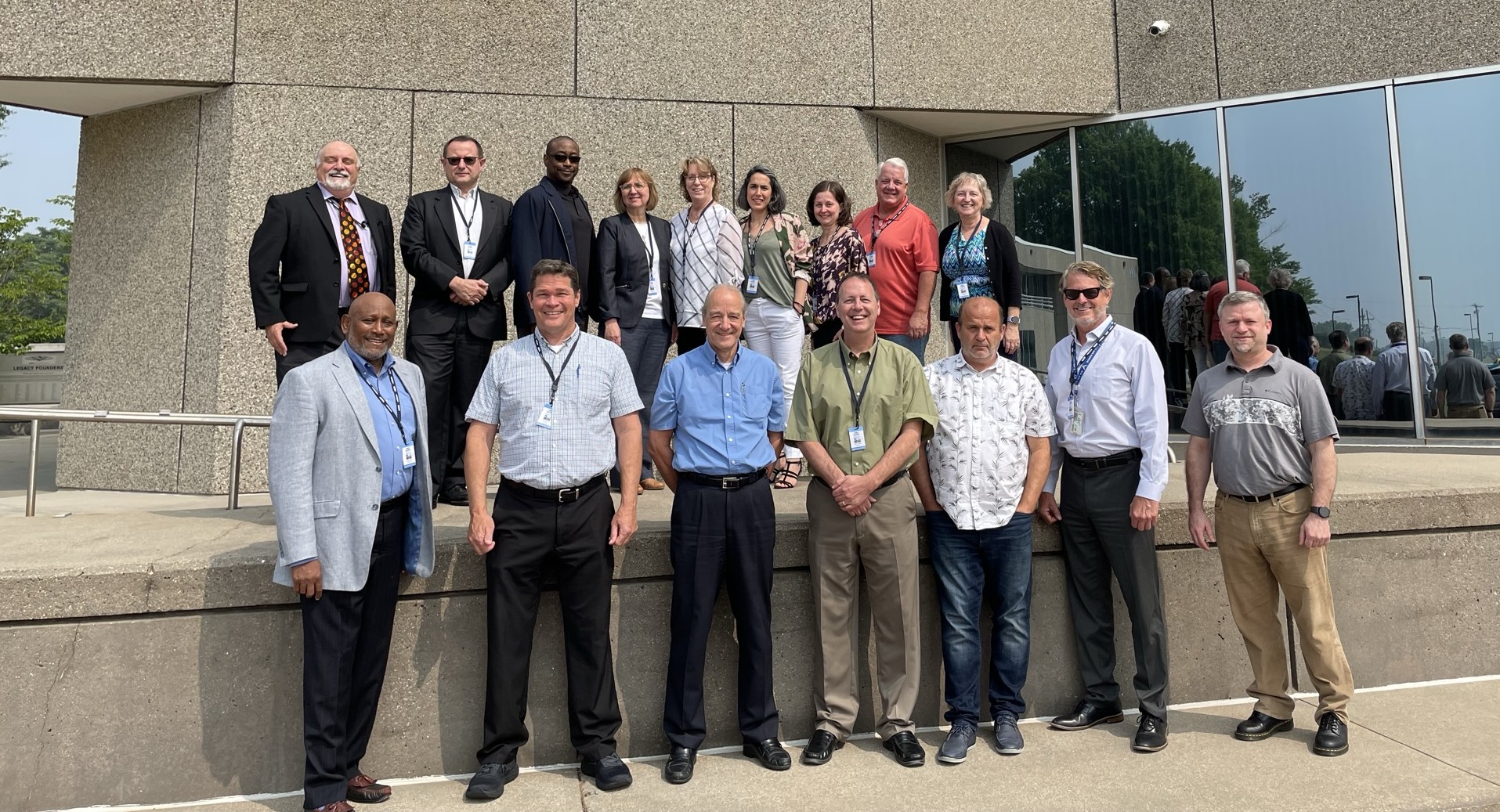WG-76 AIS/MET Datalink Services: Contribute to the New MOPS for Emergency Diversion Service (EDS)
EUROCAE WG-76 and RTCA SC-206 intend to develop a Minimum Operational Performance Standard (MOPS) for the EDS (Emergency Diversion Service). This MOPS will detail the Data Exchange Requirements, Safety, Performance, and Interoperability Requirements facilitating the implementation of the Service.
As described in ED-335/DO-364A “MASPS for AIS/MET Datalink Services”, the EDS will provide a minimum set of AI/MET Information necessary to assist the Flight Crew in the selection of a suitable aerodrome for Diversion in case of an emergency situation that makes it impossible to continue the flight to the intended destination. These may include such emergencies as rapid decompression, severe medical emergencies, mechanical failures, etc. Once the Flight Crew stabilized the aircraft, the EDS will provide at the push of a button all relevant information to select the most suitable Diversion Aerodrome.
WG-76/SC-206 is looking for experts in the following areas: Airlines, Airline Operation Centers, Air Navigation Service Providers, Airports, Airport Emergency Service Providers, Aircraft Manufacturers, Avionics Manufacturers, and Data link Service Providers.
In addition to active participation in the group, we are also seeking a volunteer to lead the group’s activities or support the work as a Document Editor. The Kick-Off Meeting for this activity is scheduled to take place during the WG-76/SC-206 Plenary Meeting, hosted by Airbus Helicopters, in Donauwörth, Germany, from 8 to 12 September 2025.
If you are interested in this Working Group, please contact the responsible Technical Programme Manager Alexander Engel.
WG-124 Spectrum is Seeking Experts for New Guidance Document
EUROCAE WG-124 and RTCA SC-242 are currently seeking additional expert participants to support the development of ED-XXX “Spectrum Guidance for Developers of Standards for Aviation Wireless Systems”.
This joint Working Group is focused on ensuring that the radio frequency (RF) characteristics of aeronautical Communications, Navigation, and Surveillance (CNS) systems are designed to use spectrum resources efficiently while maintaining the necessary safety margins. The Guidance Document will provide best practices to help the aviation industry work collaboratively with non-aviation spectrum users and ensure the safe integration of new technologies, an essential step toward advancing the aviation ecosystem.
The group is especially looking for experts involved in the design of RF avionics equipment. Their input will ensure that the guidance reflects a practical engineering perspective, especially in terms of spectrum compatibility and technical feasibility. The ultimate goal is to deliver a document that is both actionable and implementable by RF systems engineers across the industry.
If you are interested in this Working Group, please contact the responsible Technical Programme Manager Mark Watson.
New WG-132 Automated Aircraft Inspection: Calling All Experts!
WG-132 aims to develop standards, procedures, processes, and guidelines for the implementation and adoption of Automated Aircraft Inspection within the maintenance function.
With a wide range of tasks that can be enhanced by automated tools such as sUAS, Artificial Intelligence, Machine Learning, and Virtual Reality (AI/ML/VR), clear guidelines are needed to ensure continued safe and efficient operations. Industry-driven guidance will help advance, organise, and design current and future applications, including leveraging automation for non-destructive inspections using modified automated platforms.
The objective is to begin with a comprehensive report on aircraft inspection, which will define the roadmap for standards production.
We are looking for experts to join our subgroup efforts in the following areas:
- Environment: Focus on airport operational requirements, indoor/outdoor flight conditions, limitations, and safety management considerations.
- Equivalency: Address the acceptability of alternative methods to current maintenance practices, including human factors and the use of machine learning.
- Definitions & Regulatory: Establish commonly understood definitions, ensure consistency with MSG-3 terms in conditional inspections, and define a framework for approvals, acceptance, and certifications.
- System: Define minimum system requirements related to imaging, hardware, operation, safety, and other relevant factors.
- Training: Support proper system usage by developing checklists and protocols, and guiding airline adoption processes (task cards, sign-off procedures, image management, Part-145 compliance, etc.).
If you are interested in this Working Group, please contact the responsible Technical Programme Manager Bertrand Riveill.

